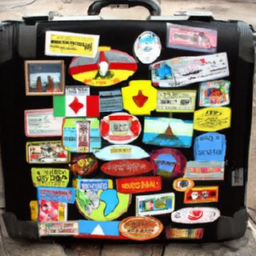Hey there! Have you ever wondered about the content of something and how easy it is to move when needed? Maybe you’ve bought a piece of furniture or a vehicle and you’re curious about its composition and mobility. Well, in this article, we’re going to dive deeper into the topic and explore the content of various objects, as well as discuss their ease of movement when required. Whether it’s a bulky couch or a portable device, we’ll cover it all.
Stay tuned to learn more about the materials used in common household items, the importance of content in different products, and how mobility factors into the equation. We’ll provide you with some interesting insights and practical tips that will help you understand the composition of things around you. By the end of this article, you’ll have a better understanding of the content of items you come across and how easily they can be moved when the situation calls for it. So, let’s get started!
And Is It Easy To Move When Needed?
Moving can be an overwhelming experience, whether it’s due to a change in career, a desire for a new adventure, or simply the need for a change of scenery. But is it easy to move when needed? The answer is not a straightforward one. While there are undoubtedly challenges that come with relocating, such as finding suitable accommodation and navigating cultural differences, there are also numerous benefits to flexible living. In this article, we will explore the advantages of embracing a more mobile lifestyle, as well as provide helpful tips for making the moving process smoother and more enjoyable.
Increased Mobility
One of the significant benefits of flexible living is increased mobility. Whether you’re moving across the city, the country, or even to a different continent, being open to new locations allows you to explore different areas and experience diverse cultures. By not being tied down to one place, you have the freedom to follow opportunities that may arise in various locations, be it for work, personal growth, or simply the desire to explore.
Opportunities for Exploration
Moving to a new place provides endless opportunities for exploration. Each location has its own unique attractions, landmarks, and natural wonders waiting to be discovered. By choosing to move when needed, you open yourself up to new experiences and allow yourself to step out of your comfort zone. Whether it’s trying new cuisines, embracing different traditions, or immersing yourself in the local art and music scene, moving offers a chance to expand your horizons and broaden your perspective.
Flexibility in Career Choices
Another significant advantage of flexible living is the increased flexibility in career choices. By being open to relocation, you can pursue job opportunities that may not be available in your current location. This opens up a world of possibilities, allowing you to pursue a career path that aligns with your passions and goals. Moving can also present exciting opportunities for professional development, such as networking with individuals in your field, attending industry events, or working for companies that specialize in your area of expertise.
Choosing the Right Location
While the decision to move may be an exciting one, choosing the right location is crucial for a successful transition. Several factors come into play when considering a new place to call home. Here are some important aspects to consider:
Considering Cost of Living
Before deciding on a location, it’s essential to evaluate the cost of living in the area. Different cities and countries vary significantly in terms of housing, transportation, and general day-to-day expenses. Researching the cost of housing, healthcare, food, and other essentials will help you determine if a location is affordable and aligns with your financial goals.
Assessing Job Opportunities
If you’re moving for career-related reasons, it’s crucial to assess job opportunities in potential locations. Research the job market, industries thriving in the area, and any specific job requirements or qualifications needed. Understanding the job landscape will help you make an informed decision and increase the likelihood of finding satisfying employment.
Evaluating Local Amenities
When choosing a location, consider the amenities and services available. Look for access to healthcare facilities, educational institutions, recreational activities, and cultural institutions. Additionally, assess the safety, transport network, and infrastructure of the area. These factors will impact your overall quality of life and contribute to a positive relocation experience.
Preparing for a Move
Once you have selected your new location, it’s time to prepare for the move. Moving can be a logistical challenge, but with the right planning and organization, it can be a smooth process. Here are some tips to help you prepare:
Organizing Belongings
Before the move, take stock of your belongings and decide what to keep, sell, donate, or throw away. Decluttering and organizing your belongings will make the moving process more manageable and reduce unnecessary expenses. Consider selling or donating items you no longer need, and be realistic about what you can comfortably take with you to your new location.
Finding Suitable Accommodation
Finding suitable accommodation is vital to feeling settled in your new location. Research the housing market in your chosen area and consider your budget, preferences, and specific needs. Whether you prefer an apartment, house, or shared accommodation, make sure to thoroughly research the options available and consider visiting in person if possible.
Arranging Transportation
Another crucial aspect of moving is arranging transportation. Depending on the distance you need to travel and the amount of belongings you have, various options are available, such as hiring a moving company, renting a truck, or shipping your belongings. Research different transportation methods and compare prices and services to find the most suitable option for your needs.
Establishing a New Routine
Once you’ve made the move and settled into your new environment, it’s time to establish a new routine. Adjusting to a new location can take time and effort, but there are several ways to make the transition smoother:
Adapting to the New Environment
Take the time to familiarize yourself with your new surroundings. Explore the neighborhood, locate essential services and amenities, and learn about local customs and cultural norms. By immersing yourself in the new environment, you will begin to feel more connected to your new home.
Exploring Social Opportunities
Getting involved in social activities is a great way to meet new people and form friendships. Join clubs or organizations that align with your interests, participate in community events, and take advantage of local gatherings. Through these social opportunities, you can network, make friends, and feel more connected to the community.
Seeking Support Networks
Relocating can be challenging, so it’s essential to seek out support networks. Reach out to local expat groups, online communities, or engage with colleagues and neighbors. These connections can provide support, guidance, and a sense of belonging in your new location.
Overcoming Challenges
Moving to a new location can come with its fair share of challenges. However, with the right mindset and preparation, you can navigate these obstacles more effectively. Here are some common challenges and tips for overcoming them:
Navigating Cultural Differences
Moving to a new location often means encountering different cultures and customs. Embrace the opportunity to learn and respect the traditions of your new community. Take the time to educate yourself about the local customs and etiquette to avoid unintentionally offending anyone. Cultivating an open mind and curiosity about different cultures will enhance your experience and help you integrate more smoothly.
Dealing with Language Barriers
Language barriers can be a significant hurdle when moving to a new location, especially if you don’t speak the local language fluently. Consider taking language classes or using language-learning resources to familiarize yourself with the basics. Additionally, try to surround yourself with individuals who speak your native language and can help with translation when needed.
Adjusting to Climate Change
Moving to a new location often means adapting to different climates. Whether it’s adjusting to extreme heat, bitter cold, or high humidity, it’s important to prepare accordingly. Invest in suitable clothing, prepare your home for different weather conditions, and research ways to stay comfortable in your new climate.
Maintaining Relationships
While moving can be an exciting opportunity for personal growth, it’s essential to maintain relationships with loved ones. Here are some strategies for staying connected:
Staying Connected with Loved Ones
Don’t let the physical distance hinder your relationships with loved ones. Make an effort to stay in touch through regular phone calls, video chats, or even handwritten letters. Celebrate special occasions together and plan visits to reconnect in person.
Building New Friendships
Building new friendships in your new location is vital for a sense of belonging and support. Be open to meeting new people and forming connections. Join local interest groups or attend social events to meet individuals with similar interests and values.
Nurturing Long-Distance Relationships
If you have significant relationships with individuals who are not geographically close, it’s crucial to foster those connections. Use technology to your advantage by scheduling regular catch-up sessions, organizing virtual game nights, or planning trips to visit each other.
Benefits of Local Integration
Embracing a flexible lifestyle and moving to different locations provides numerous benefits, including:
Learning from Different Cultures
Living in different locations exposes you to diverse cultures and ways of life. By immersing yourself in these cultures, you will gain valuable insights and broaden your understanding of the world.
Broadening Perspectives
Experiencing different environments and interacting with people from various backgrounds will broaden your perspectives and help you develop a more open-minded and inclusive mindset.
Enhancing Personal Growth
Moving to new locations challenges you to adapt, learn, and grow. Each move presents an opportunity to step out of your comfort zone, explore new interests, and develop new skills.
Financial Considerations
When contemplating a move, it’s crucial to consider the financial implications. Here are some financial considerations to keep in mind:
Managing Expenses
Relocating incurs various expenses, such as transportation, accommodation, and setting up utilities. It’s important to budget and plan for these costs to avoid financial strain.
Budgeting for Unforeseen Circumstances
Additionally, it’s essential to have a financial cushion to accommodate any unforeseen circumstances that may arise during the moving process or after settling into your new location.
Understanding Tax Implications
Moving to a new location may have tax implications. Research the tax laws and regulations in your new country or state to ensure compliance and proper financial planning.
Making the Most of Opportunities
Embracing flexibility and moving when needed presents countless opportunities for personal and professional growth. Here’s how you can make the most of these opportunities:
Taking Advantage of Unique Experiences
Each new location brings unique experiences and opportunities. Take advantage of these by exploring the local attractions, participating in cultural events, and immersing yourself in the community.
Embracing Personal Development
Moving allows you to encounter new challenges and develop resilience. Embrace personal growth opportunities, whether it’s furthering your education, pursuing hobbies, or taking on new responsibilities.
Expanding Professional Networks
Relocation provides an excellent opportunity to expand your professional network. Attend industry events, join local professional organizations, and connect with individuals in your field to broaden your professional horizons.
Conclusion
Moving when needed may not always be easy, but the benefits it offers make it well worth considering. By embracing a flexible living approach, you can increase mobility, explore new locations, and enjoy a range of enriching experiences. With careful planning, the right mindset, and a willingness to adapt, you can successfully navigate the challenges that come with moving and make the most of the opportunities that lie ahead. So, is it easy to move when needed? Perhaps not always, but the rewards are undoubtedly worth it.

